Boris Godunov
Boris Godunov by Modest Petrovich Mussorgsky, opera in four acts (1869 version). Libretto by Modest Petrovich Mussorgsky. Teatro alla Scala, new production. Attended by Opera Gazet: Dec. 7, premiere.
Conductor Riccardo Chailly
Director Kasper Holten
Teatro alla Scala Orchestra & Chorus
Boris Godunov, Ildar Abdrazakov; Fydor, Lilly Jørstad; Kseniya, Anna Denisova; De nanny, Agnieszka Rehlis; Vasiliy Shuiski, Norbert Ernst; Shchelkalov, Alexey Markov; Pimen, Ain Anger; Grigorij Otrepev, Dmitry Golovnin; Varlaam, Stanislav Trofimov; Misail, Alexander Kravets; Innkeeper, Maria Barakova; De yuródivïy, Yaroslav Abaimov; Guard, Oleg Budaratskiy; Mityukha, Roman Astakhov; Court boyar, Vassily Solodkyy
Mussorgsky’s disturbing fresco on the brutality and solitude of power, inspired by Pushkin, has a strong bond with La Scala: this was where it debuted in Italy in 1909 and where Claudio Abbado put his name to a memorable edition directed by Yuri Lyubimov on 7 December 1979. Abbado was assisted by Riccardo Chailly, who today, for his ninth season inauguration, has chosen to conduct for the first time this title of profound humanity in which personal drama is reflected in collective tragedy, made all the more rich in meaning by his choice of the first version of the opera. The stage direction of Kasper Holten, former Director of Covent Garden, adds a view of the history of Russia, heightening the emotional experience with a reflection on the value of memory and the bearing of witness.
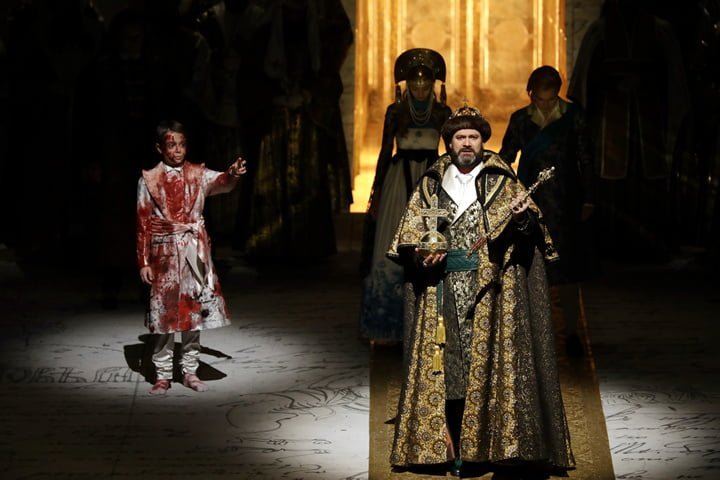
The Scala opened the 2022-2023 season with Boris Godunov, in the 1869 version: the so-called primal Boris, which for 25 years has been the most popular version in opera houses around the world.
Riccardo Chailly, music director of La Scala, peaked with one of his finest performances. Notable first and foremost was the carefully executed interplay of the orchestra, with an excellent balance between precision and expressiveness, timbre fidelity and theatrical effectiveness. Also essential was Chailly’s constant ability to “breathe” with the singers: Chailly accompanied and supported the voices admirably.
Orchestra and chorus of the Teatro alla Scala operated at the same top level; world class. They interpreted, as it were, a second protagonist in this opera. One of the most impressive was the famous scene of the Innocents, in the fourth act, with its desperate begging for bread. The people, in all their changing moods, are represented by the chorus. We have never heard the feelings and sudden changes of mood better than here by the chorus of La Scala.
Abdrazakov, a fantastic Boris Godunov
Ildar Abdrazakov delivered a truly outstanding performance. Although his voice cannot be compared to the famous basses of the past, such as Ghiaurov or Pinza, his interpretation can. The last part of the work, which includes the death of Boris, is sung in a whisper but beautifully. The singing here does not “lapse” into speech. It is easy to push the boundaries with speech, or, worse, to utter a death rattle just to try to be extremely expressive. Abdrazakov gives a flawless vocal interpretation and shows deep musicality in his noble interpretation of this role. His voice never distorts into the grotesque; he always remains in character until the final excruciating delirium that leads him to death.
Overall, the rest of the cast was excellent and very well matched. Ain Anger, the monk Pimen, is a bit shallow in the first of his two scenes, but very sharp in the second; Trofimov provided an excellently sung Brother Varlaam, more subdued than usual, a plus. Norbert Ernst is an excellent Prince Vasily Ivanovich Shuisky and the minor role of the false Dmitry was in good hands with Dmitry Golovnin.
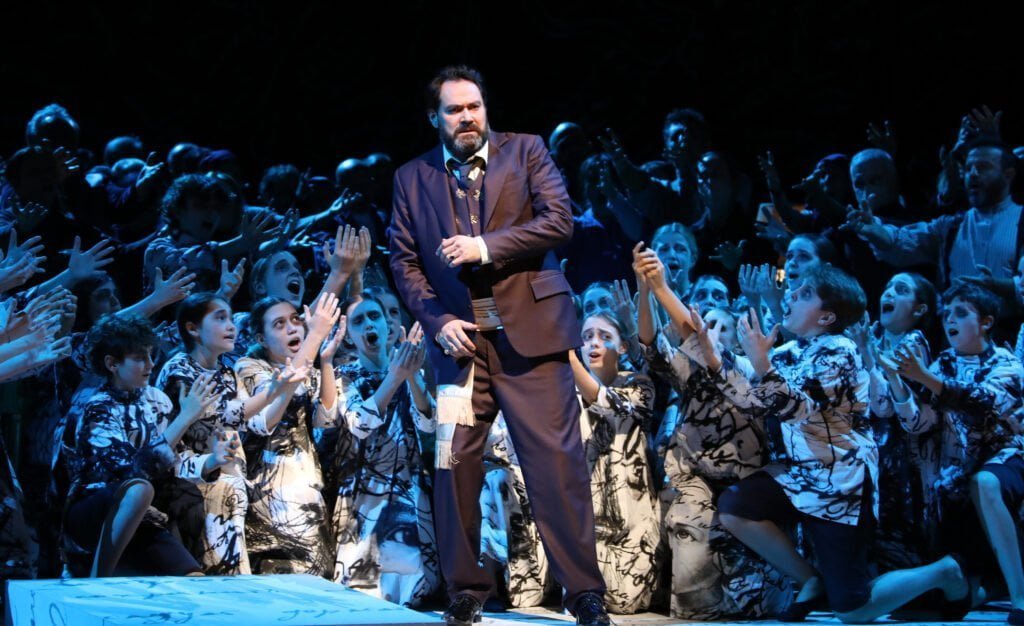
Unfortunately, what we got to see was not of the same level as what came to us through hearing. The stage setting is dominated by a huge parchment symbolizing the flow of history; various characters write their version of the facts on it. It is the chronicle of Pimen, constantly censored by the establishment.
Like a constant nightmare for the tsar, the bloodied ghost of the little tsarevich Dmitry, murdered by Boris, is constantly on stage to remind him of his guilt, until later in the play even his own children appear covered in blood. We did not find this twist particularly successful: it is only Boris who sees the ghost, not the audience, not the other characters. It is a strictly individual emotion of Boris, which, while familiar, is and remains absolutely personal.
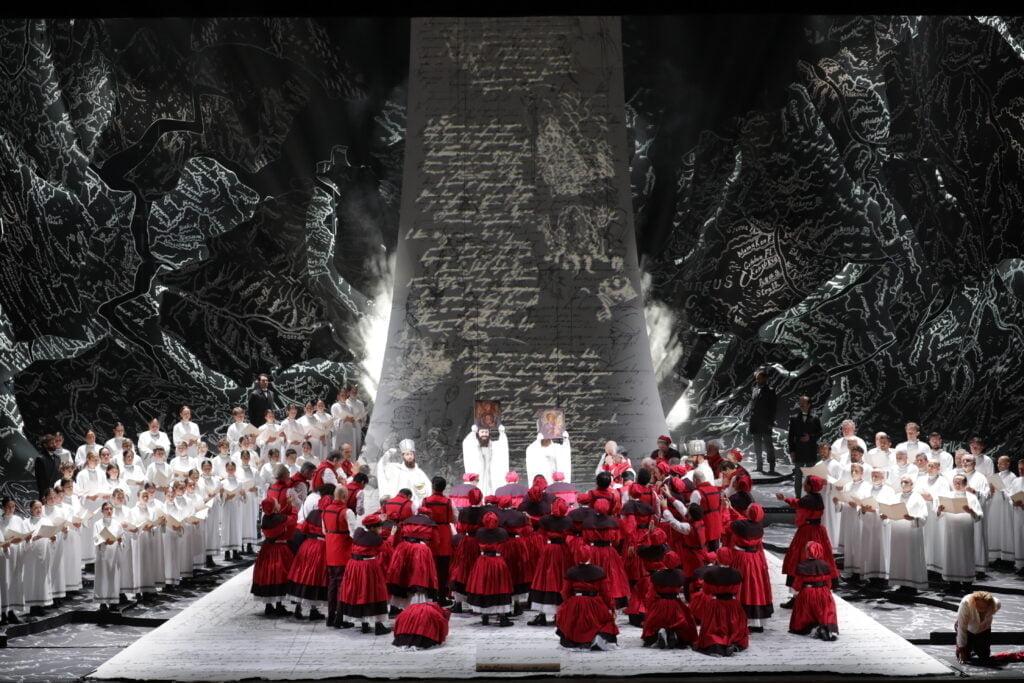
A tad shabby is the scene of Boris and his sons. At the end, Boris is stabbed to death. Why? By whom? However, very nice is the coronation scene, with appropriate costumes and beautiful lighting; unfortunately, modern suits appear again in the second act. The direction, while not getting in the way of the music, does not help to really understand Boris Godunov.
There were ovations for the entire cast: a triumph for conductor Riccardo Chailly, for the chorus under the admirable direction of Alberto Malazzi and, of course, for Ildar Abdrazakov, a fantastic Boris Godunov.
Federico Rota

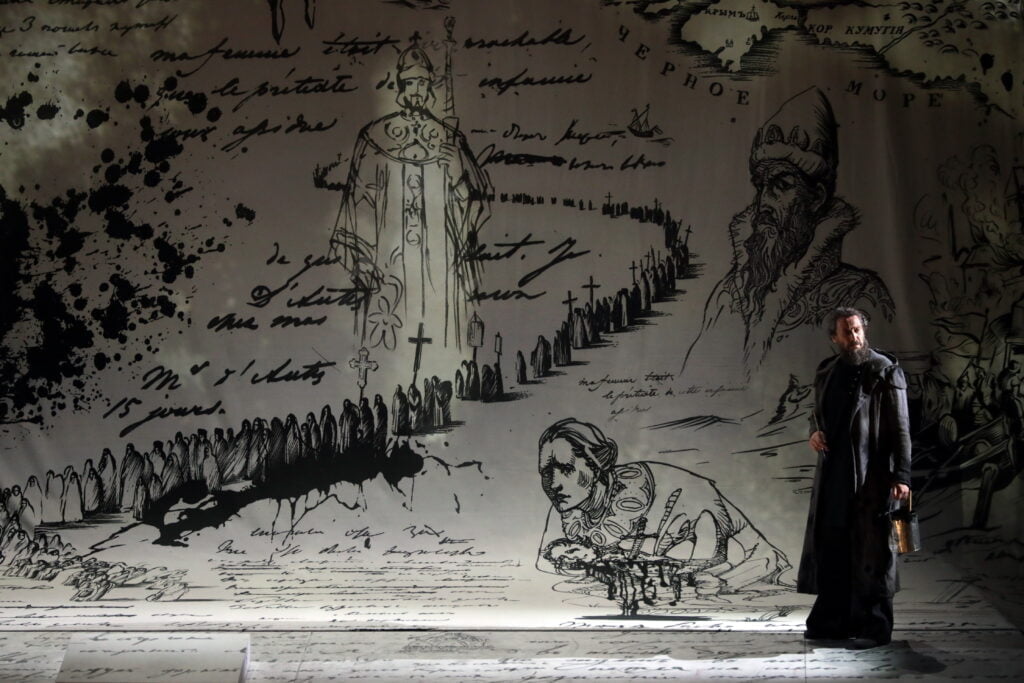
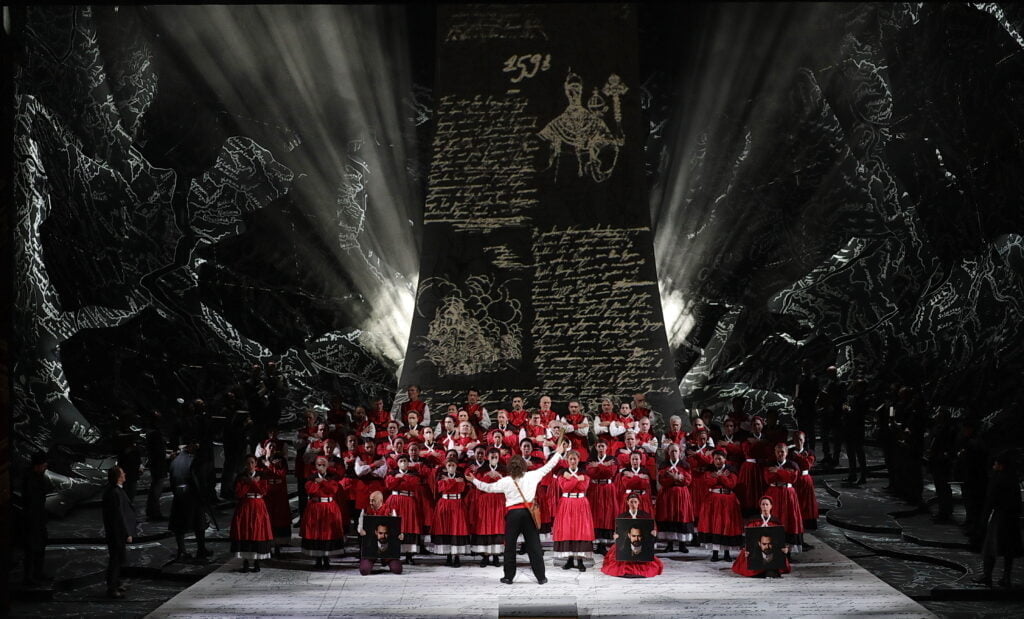
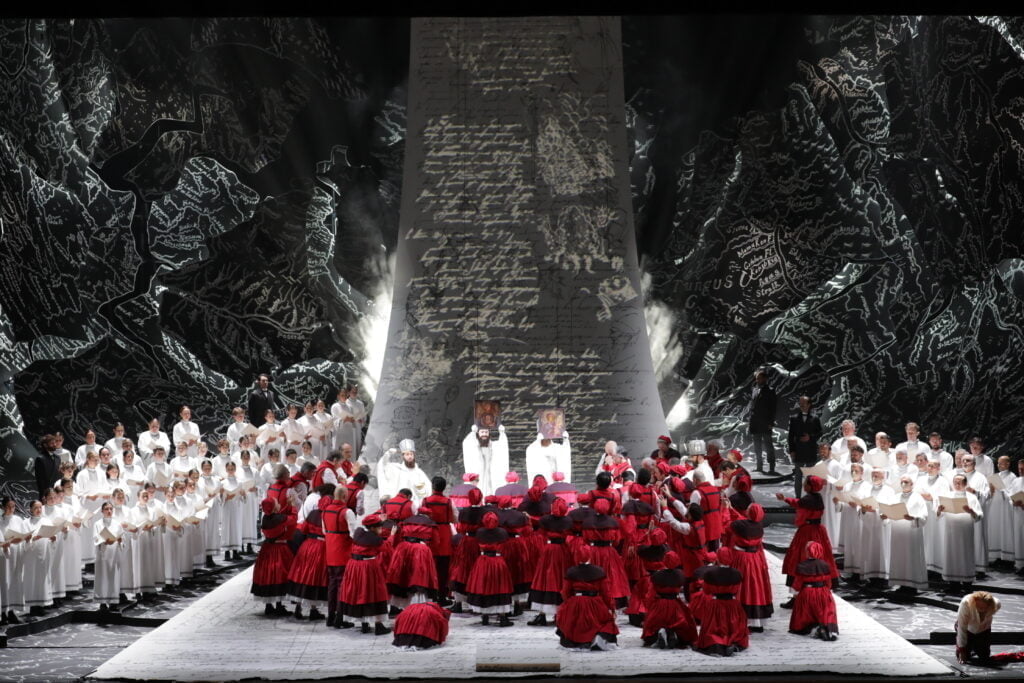
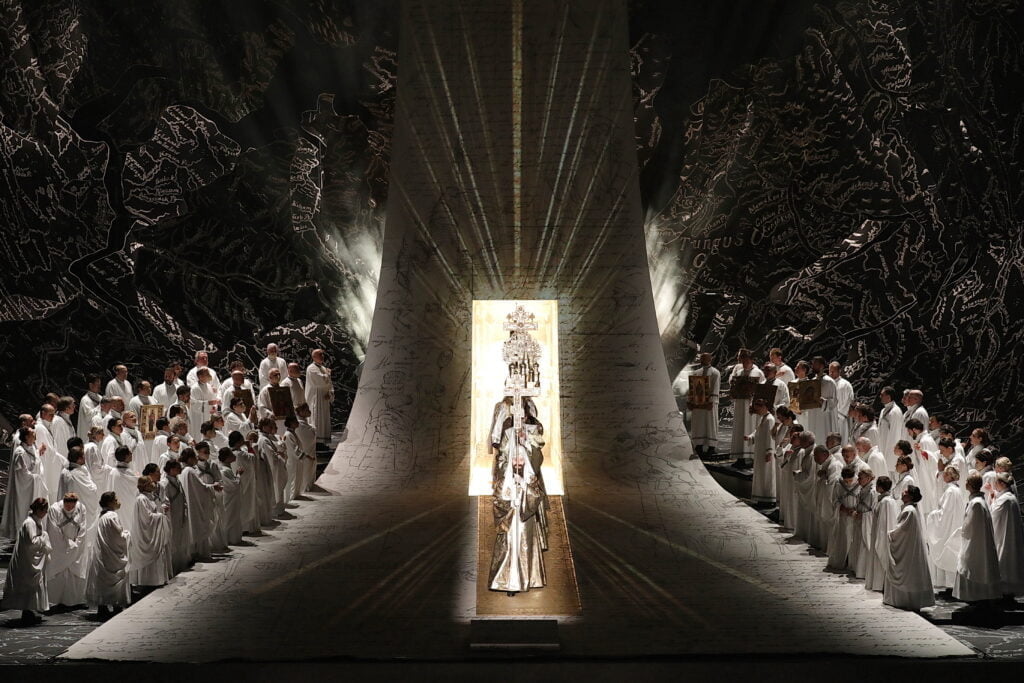
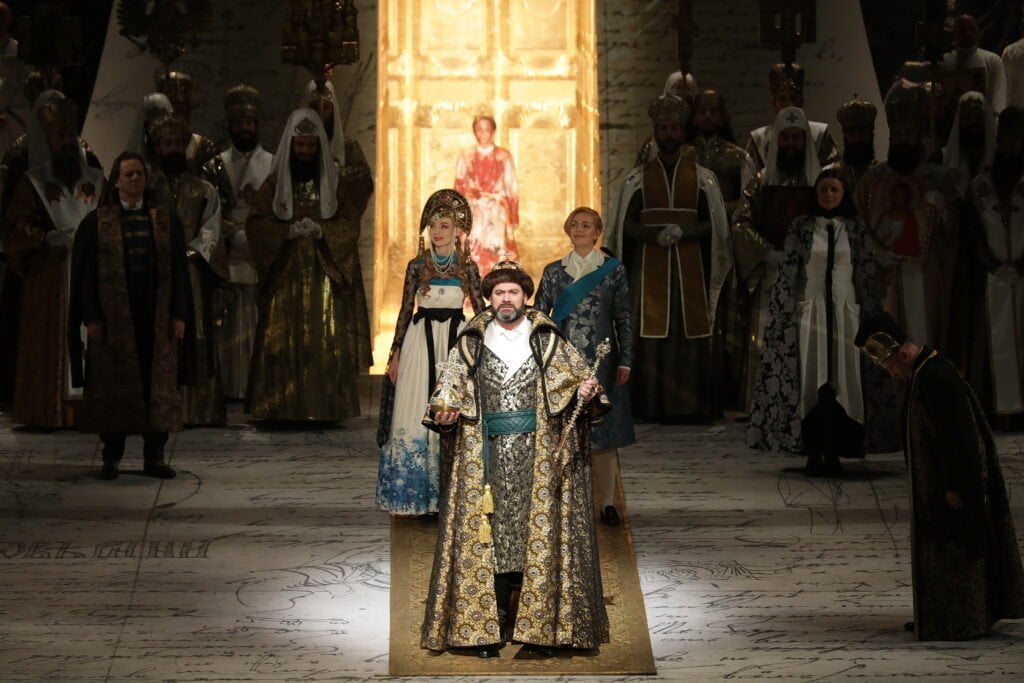
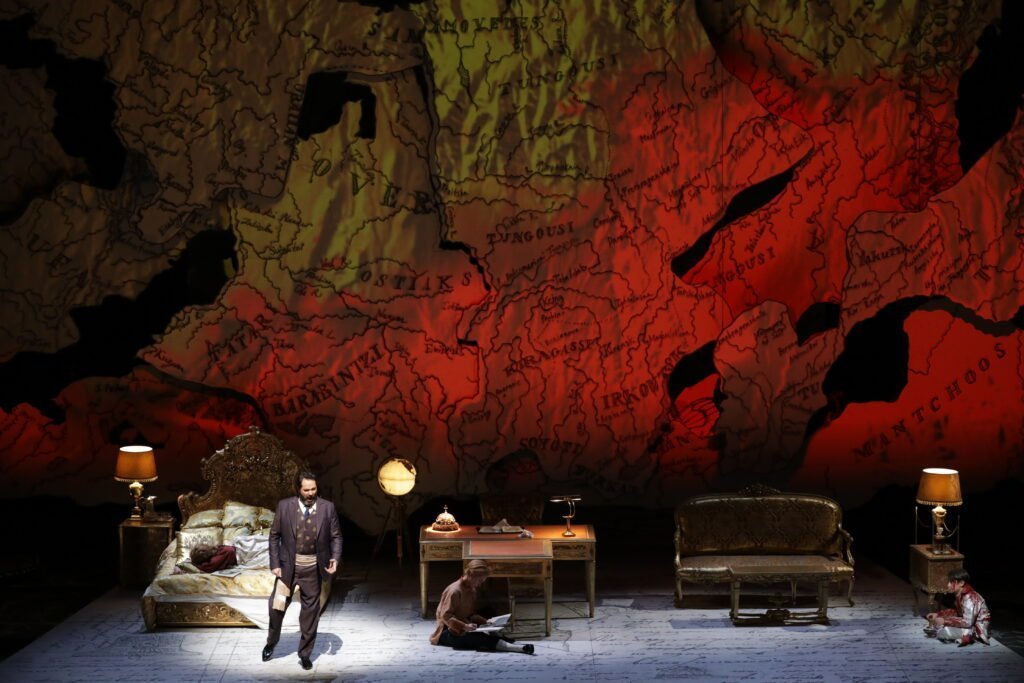
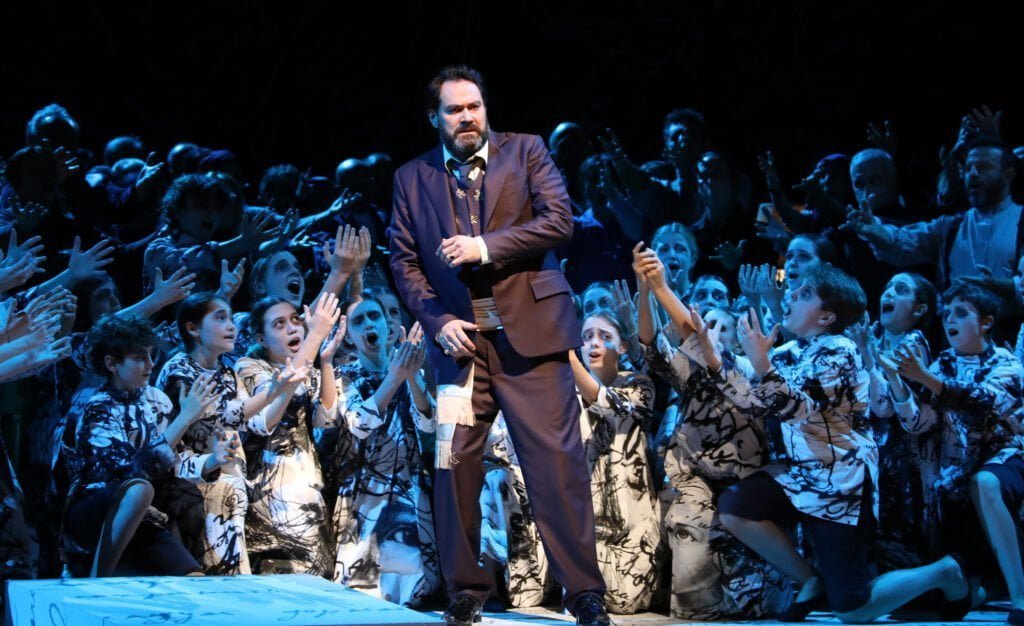
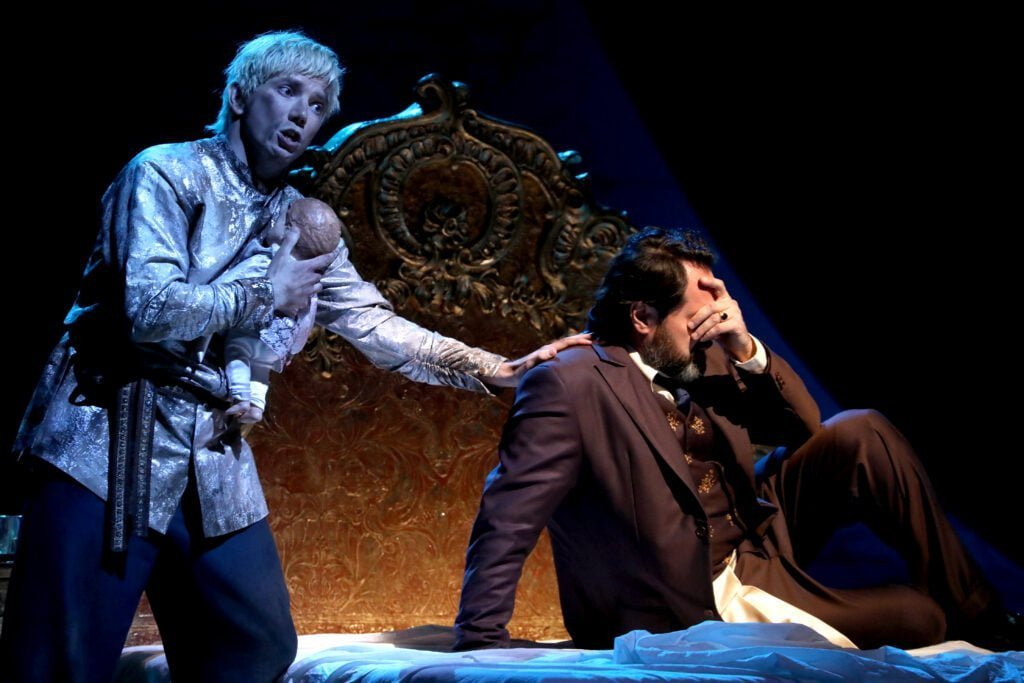
Beautiful review of a very impressive opera. I have seen it years ago. Was it DNO? I am not sure. I would have loved to be in the La Scala version.